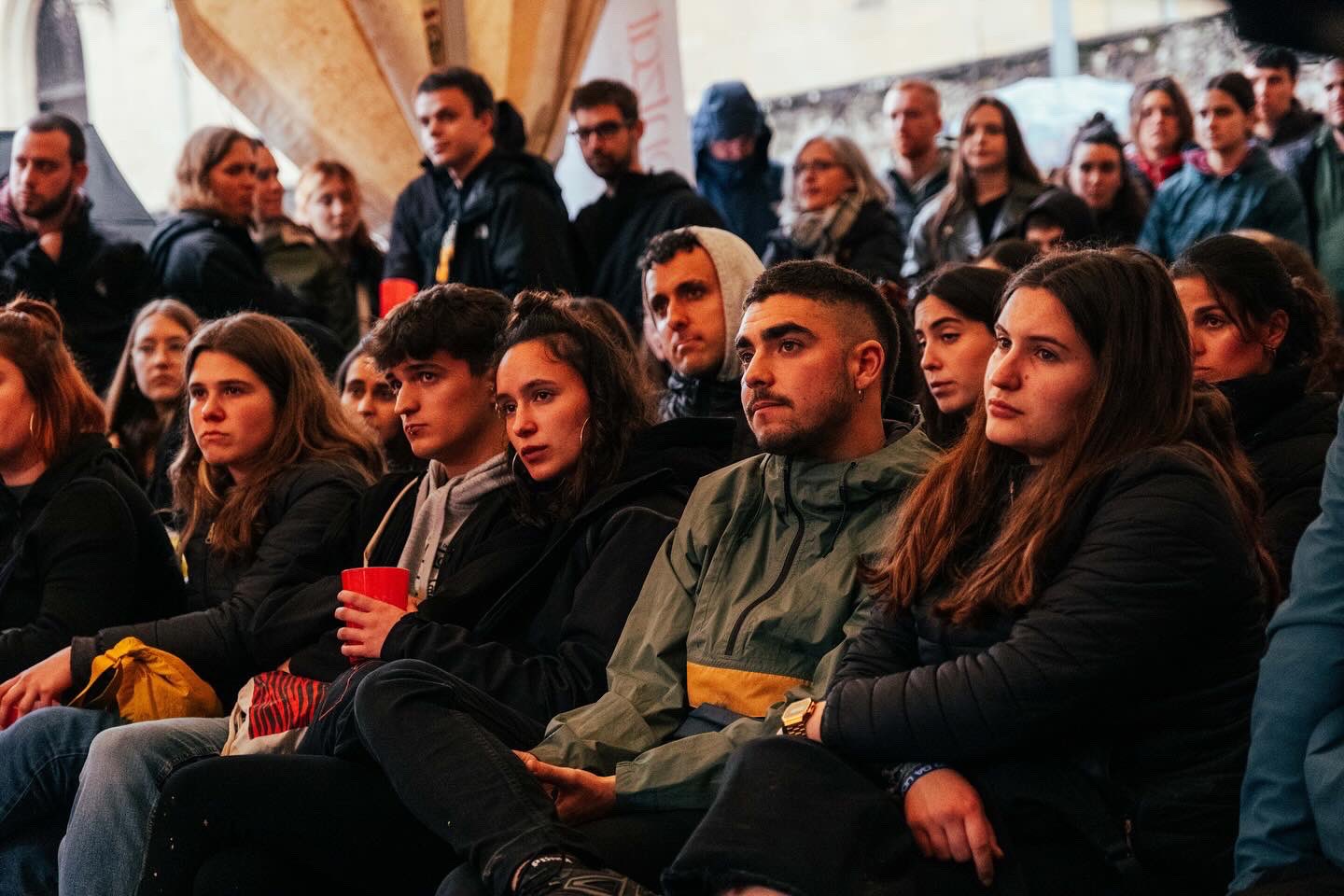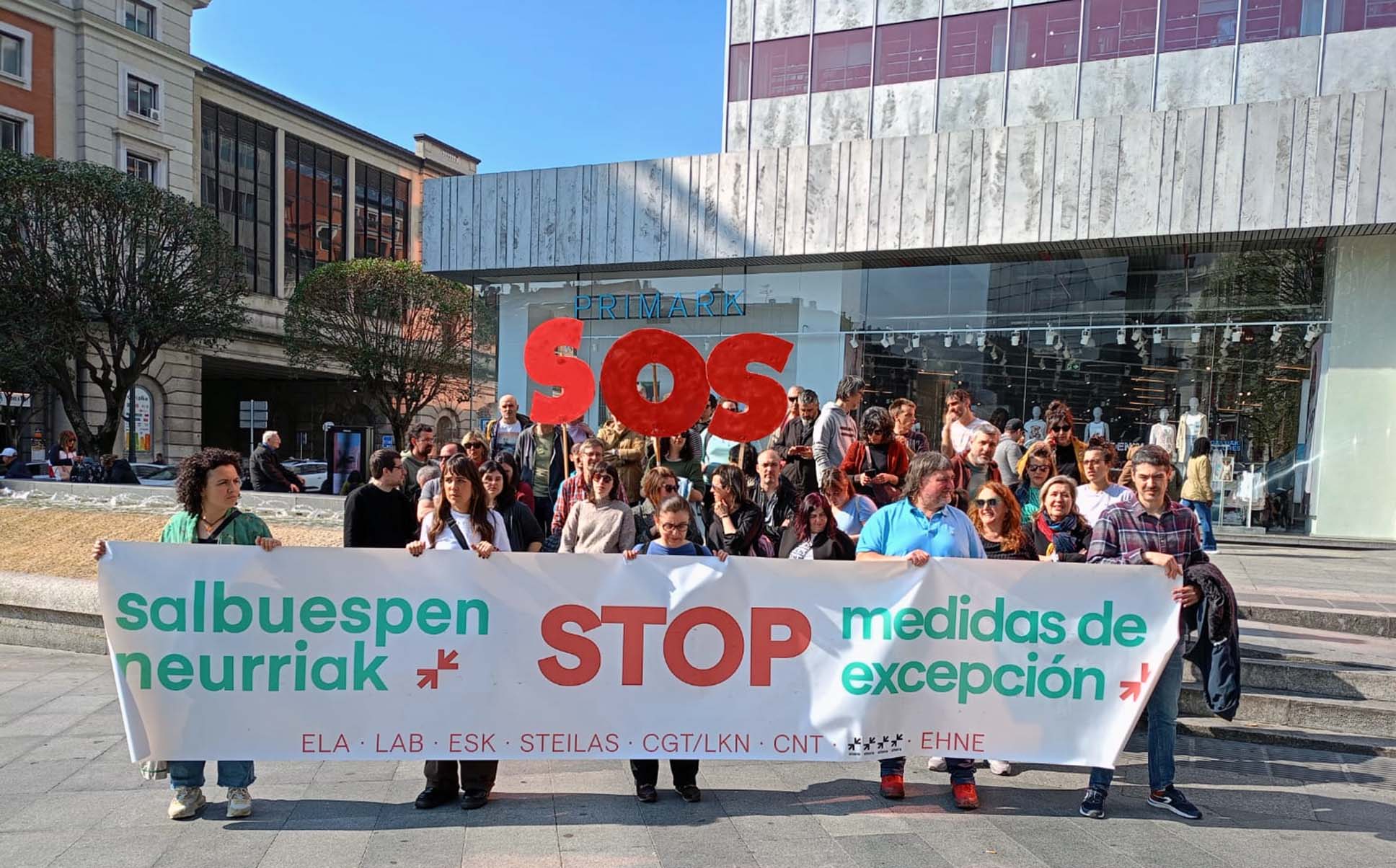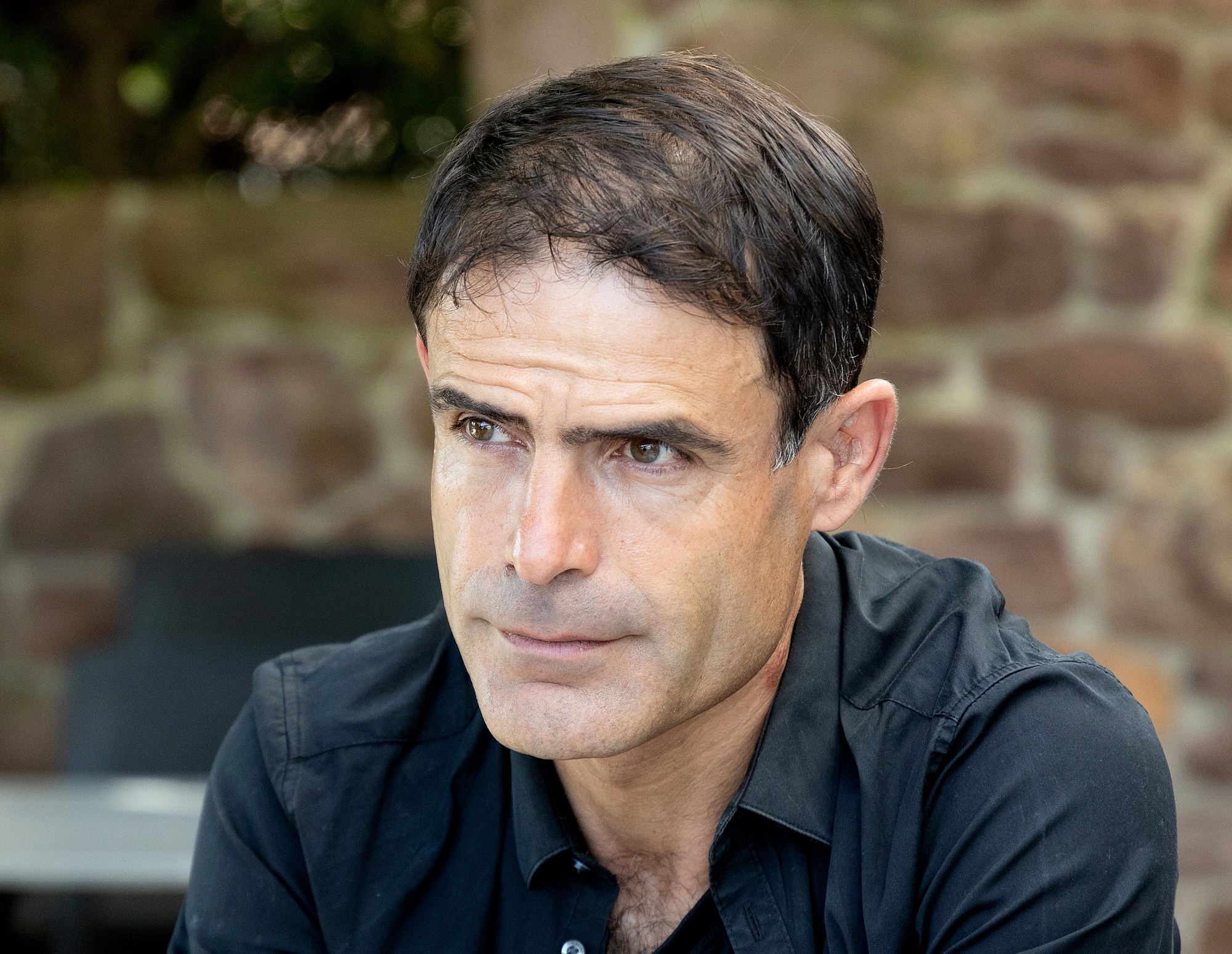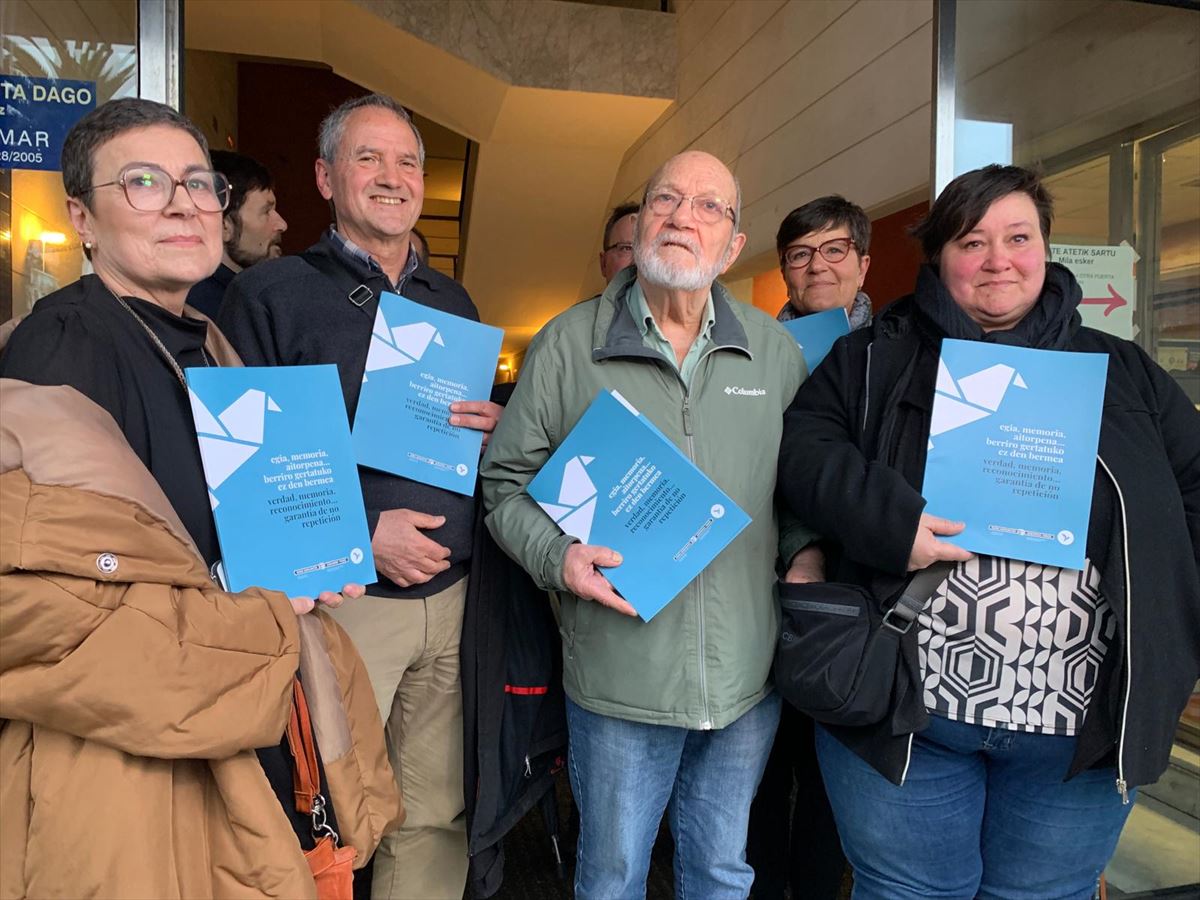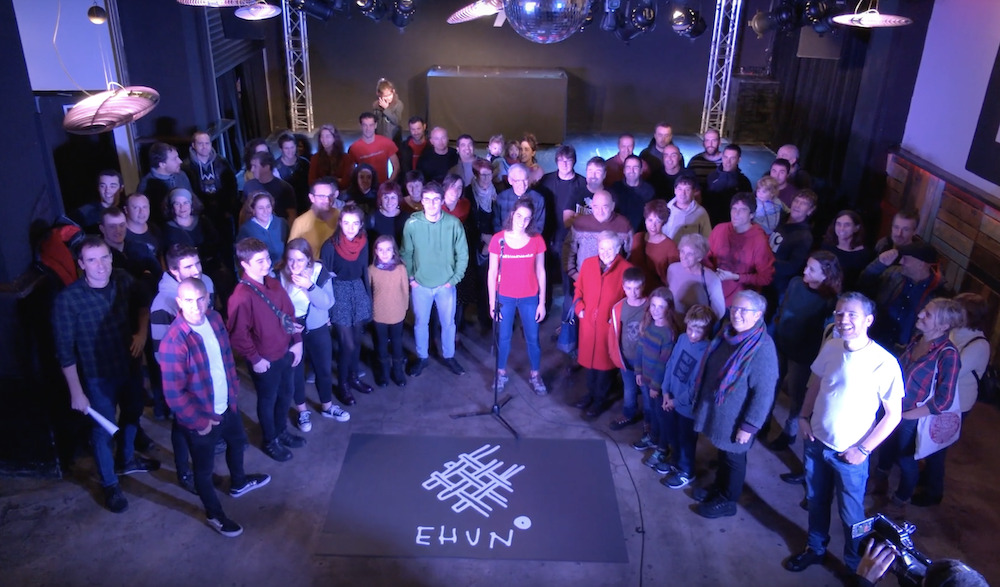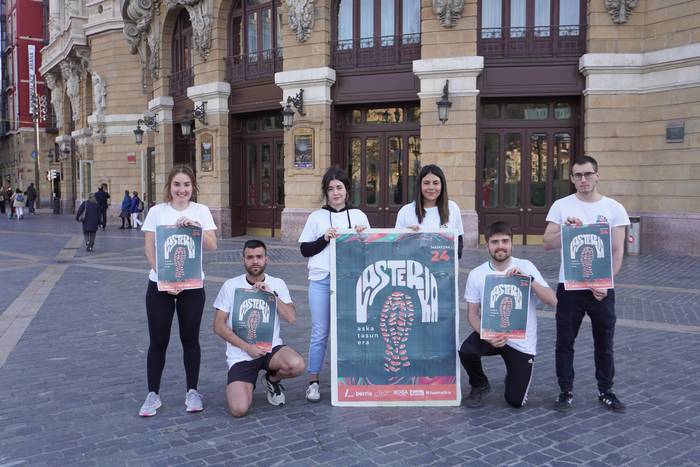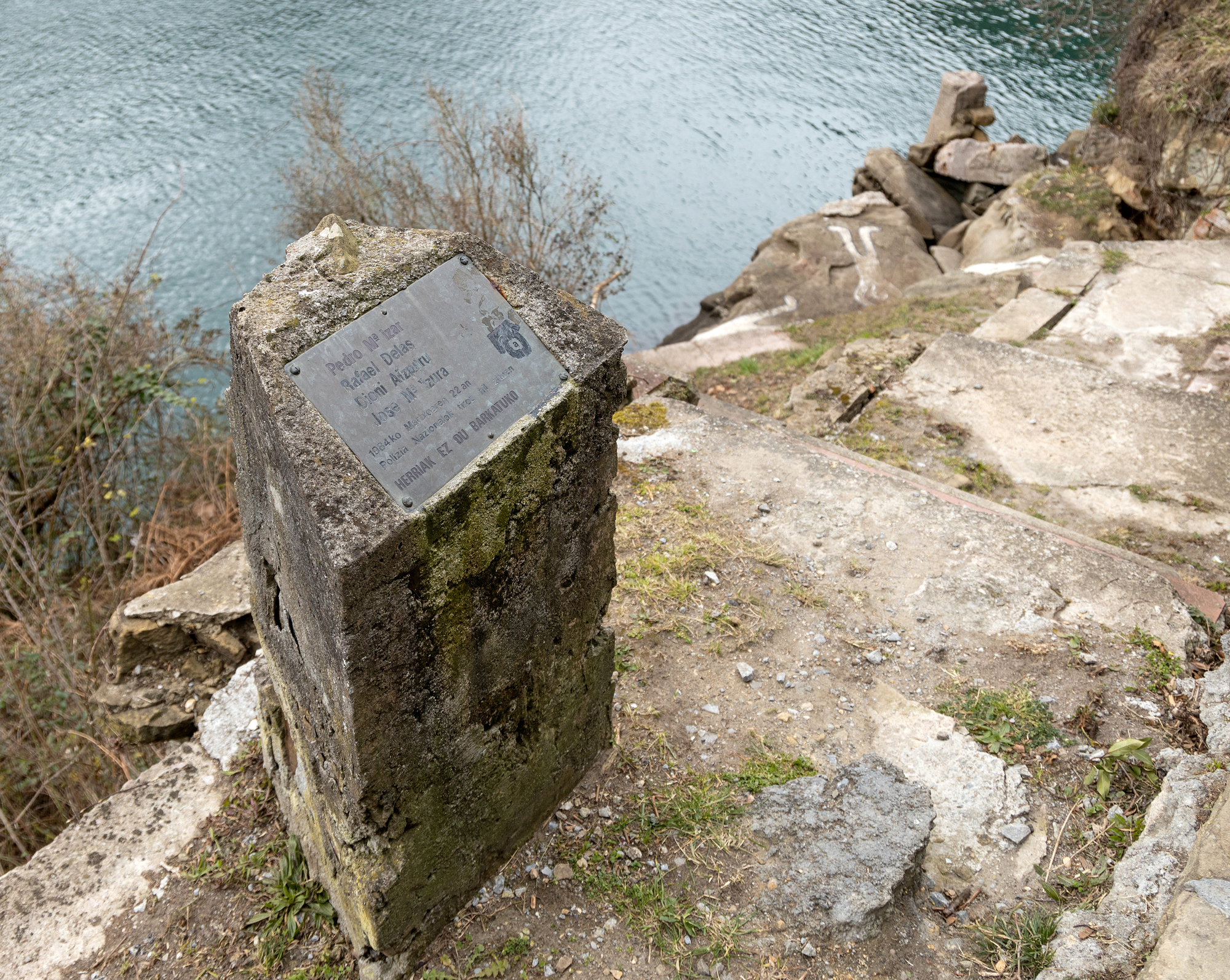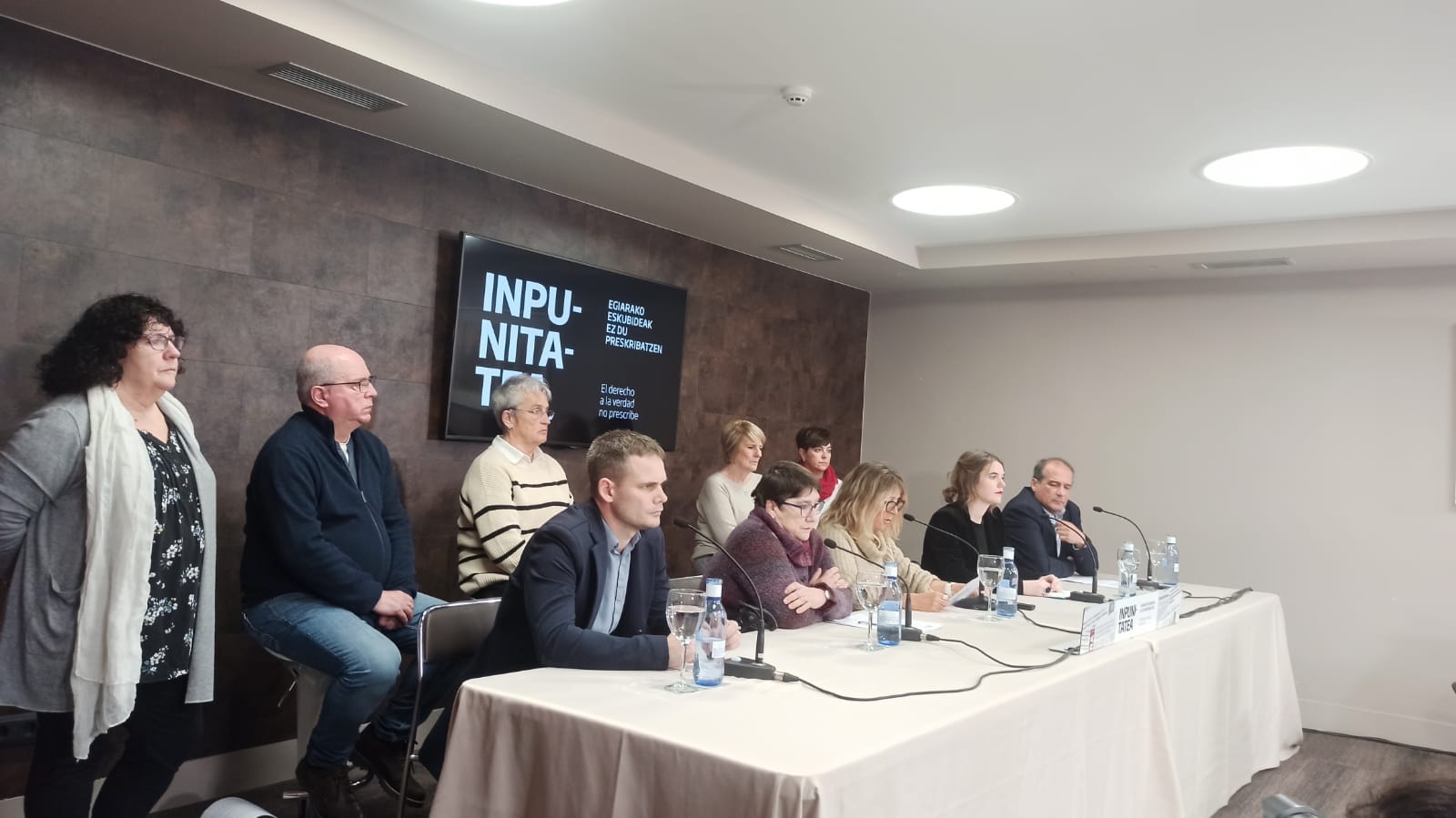Report
- The interview by Josu Urrutikoetxea to Berria (16 December) reflects how weak ETA was at the 2006 truce. According to him, when he came to ETA’s management with what was achieved in the talks with the Spanish Government, they were surprised: “Hostile, has this been achieved?”

He confesses that he believed in the process, but that the environment was negative from the beginning, and that his belief was crumbling with what an organization manager said before leaving for Geneva: “Because I realized that their mindset about negotiation and mine was on one side and on the other. I realized that something had happened in the organization.” And in the same interview he explained that in previous years those who agreed with him fell and that the new directors did not agree with the previous negotiation scheme.
However, he participated in the summer 2006 negotiations with Javier López Peña, a member of ETA’s management. Then he abandoned the process, with a very particular view of his negotiating partner: “I didn’t believe in the process [that].” The whole programme speaks very strongly: "If he went upside down, it wasn't just because of Madrid's attitude. If you don’t want to enter a negotiation and don’t believe, what are you going to do?” ETA broke the ceasefire with the T-4 attack, without formally breaking the truce: “I thought the ceasefire would break,” says Urrutikoetxea, “but not with an action on the ceasefire. In Euskal Herria, much importance has been attached to the word of the organization”.
Arnaldo Otegi was clear that the Spanish Government did not honour its commitments, but also that the Abertzale Left acted with little patience, “because, if in three months it is in crisis [the process], it has very weak bases. And for this we do not enter a process of this kind” (Las Faldas de Loiola). By then, of course, visions that in 2009 would be divergent and based on the continuation or not of the armed struggle were already being consumed.
In other times, the need to end the armed struggle was also strongly heard on the left by Abertzale, as ex-prisoner Karlos Gorrindo reports in his book Funambulista Beldarrain. In all of them, you lose your neck. Time is relentless: now executioner, now victim; today hero, tomorrow traitor. Different conceptions, diverse narratives. That's why what Joseba Sarrionandia says in the prologue to Gorrindo's book is so interesting: “If we want the past not to be understood, we cannot impose a story, we have to listen to other visions (…) Sharing the memory of each and contrasting with others is like cleaning up the entrance of the city.”
Aberri Eguna elkarrekin ospatzeko xedez sortu zen Euskal Herria Batera plataforma. Aurten, ikusgarri bat eskainiko dute apirilaren 11n, Manex Fuchs antzerkilariaren, Lorea Agirre idazlearen eta Martxel Rodriguez dantzariaren eskutik.
The writer Juan Bautista Bilbao Batxi worked in a boat and sent the chronicles of his travels to the newspaper Euzkadi. Thanks to this, we have interesting chronicles in Basque from around the world from the beginning of the 20th century. In June 1915, he made his stop in... [+]
Fusilamenduak, elektrodoak eta poltsa, hobi komunak, kolpismoa, jazarpena, drogak, Galindo, umiliazioak, gerra zikina, Intxaurrondo, narkotrafikoa, estoldak, hizkuntza inposaketa, Altsasu, inpunitatea… Guardia Zibilaren lorratza iluna da Euskal Herrian, baita Espainiako... [+]
Azken astean ezagutarazi moduan, Eusko Jaurlaritzaren Balorazio Batzordeak txosten banatan aitortu ditu estatuaren biktima gisa. Justizia sailburuak ekitaldi pribatu banatan entregatu dizkie dokumentuak.
Independentziaren aldeko ekimenak aurrera eramateko baliabide faltagatik "itzaliko" da. Aurretik, Euskal Herri osoko 101 udaletan independentzia mozioak erregistratuko dituztela iragarri dute, euskal errepublikaren aldeko prozesuan urratsak egiteko. Baliabide faltaz... [+]
Kirola eta aldarrikapena uztartuz, maiatzaren 24an Bilbo gazteria independentistaz beteko da. Lasterketa honen bitartez, Euskal Herriaren askatasunaren aldeko balioei lekua egin nahi diote gazteek, independentziarako bidean daudela erakutsiz.
Rosa Zarra Ertzaintzaren pilotakada baten ondorioz hil zela da Eusko Jaurlaritzako Poliziaren Biktimen Balorazio Batzordeak atera duen ondorioa, Berria-k jakinarazi duenez. Orain arte, Ertzaintzak beti egin dio uko bertsio horri, eta Rosa Zarra berak zuen gaixotasunaren ondorioz... [+]
“Saihestu egingo dira giza eskubideen, ordenamendu juridikoaren eta espetxeetako tratamendu psikosozialaren aurkako balioak eta jarrerak babestea, justifikatzea eta goratzea ekar dezaketen adierazpenak”, dio, besteak beste, agiriak. Azaroan Eusko Jaurlaritzako... [+]
Espainiako Poliziak duela 41 urte hil zituen tiroka Dionisio Aizpuru, Pedro Mari Isart, Jose Mari Izura eta Rafael Delas gazteak, Komando Autonomo Antikapitalistetako kideak.
GALeko biktima talde batek eman du kereilaren nondik norakoen berri Bilbon egindako prentsaurrekoan, Egiari Zor fundazioak eta Giza Eskubideen Euskal Herriko Behatokiak lagunduta. GALen aurkako eta, zehazki, José Barrionuevoren aurkako kereila aurkeztuko dute.
Asteazken eguerdian berreskuratu du askatasuna astigartarrak, zigorra osorik beteta. Espainiako Auzitegi Nazionalak otsailean inputatu zuen ETAren zuzendaritzako ustezko beste lau kiderekin batera, Gregorio Ordoñezen hilketa leporatuta.
Martxoaren 13an lau urte bete dira Fran Balda arbizuarra istripuz hil zela. Preso, iheslari eta deportatuen etxeratzearen alde egin zuen lan, eta haren bost kidek idatzi diote gutun hau.








